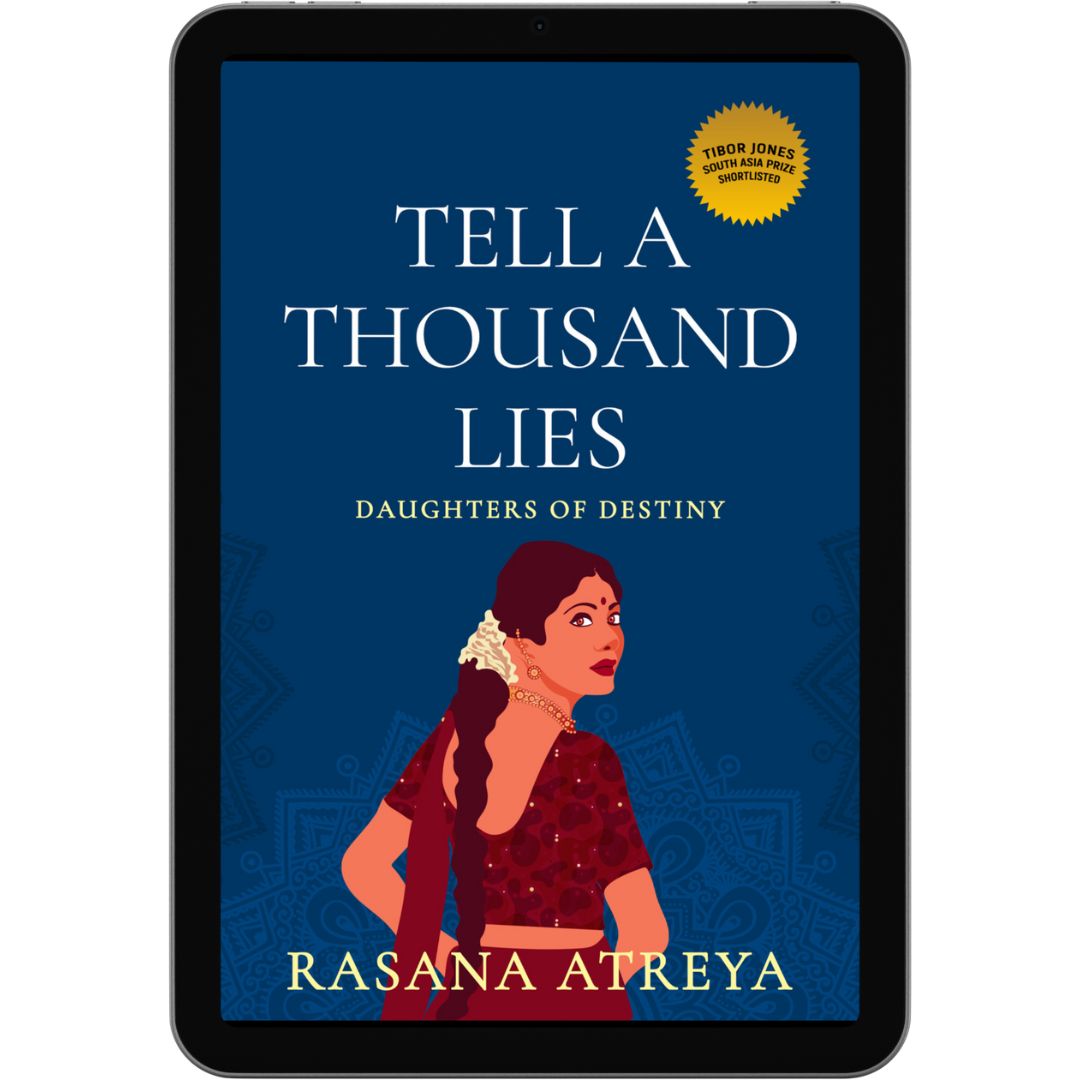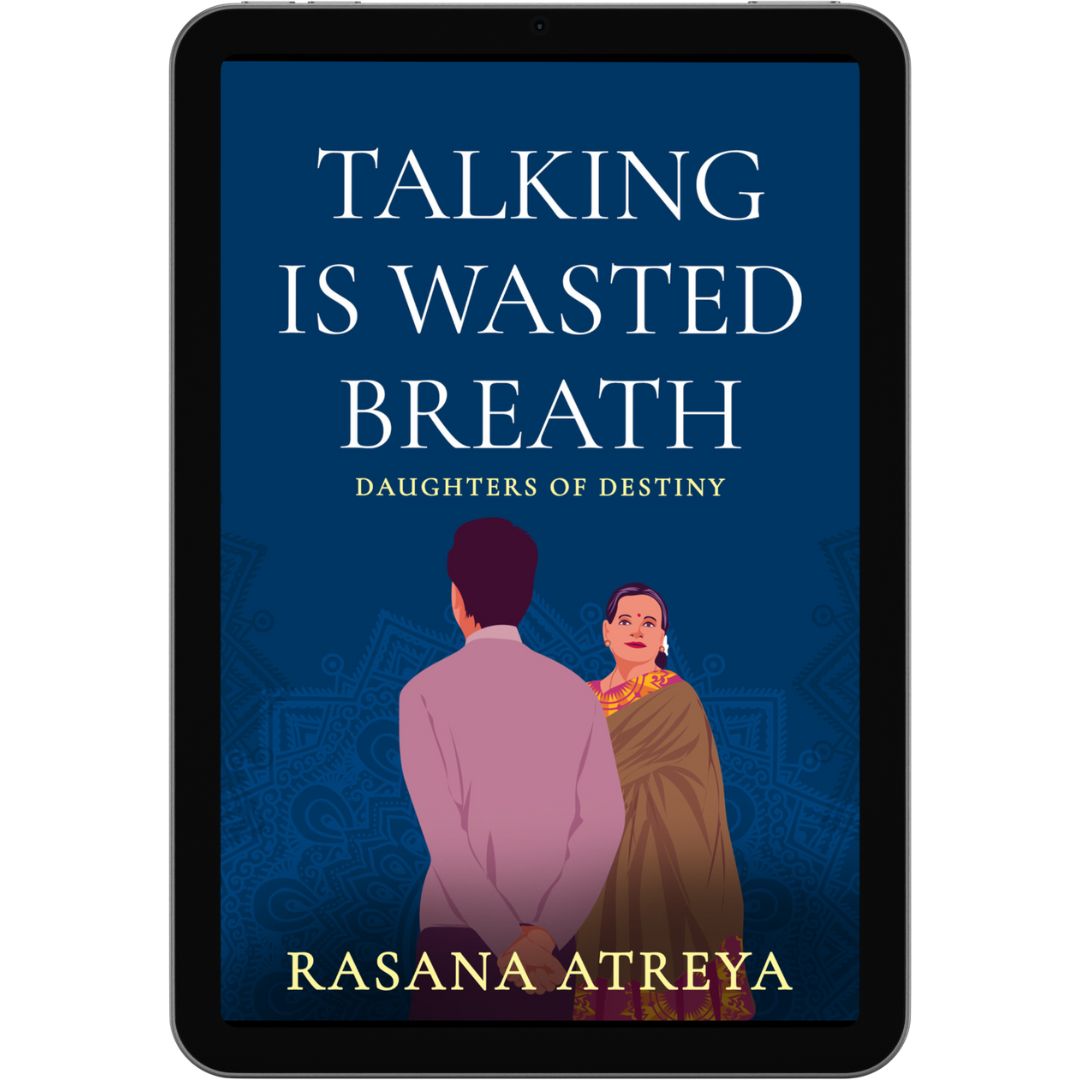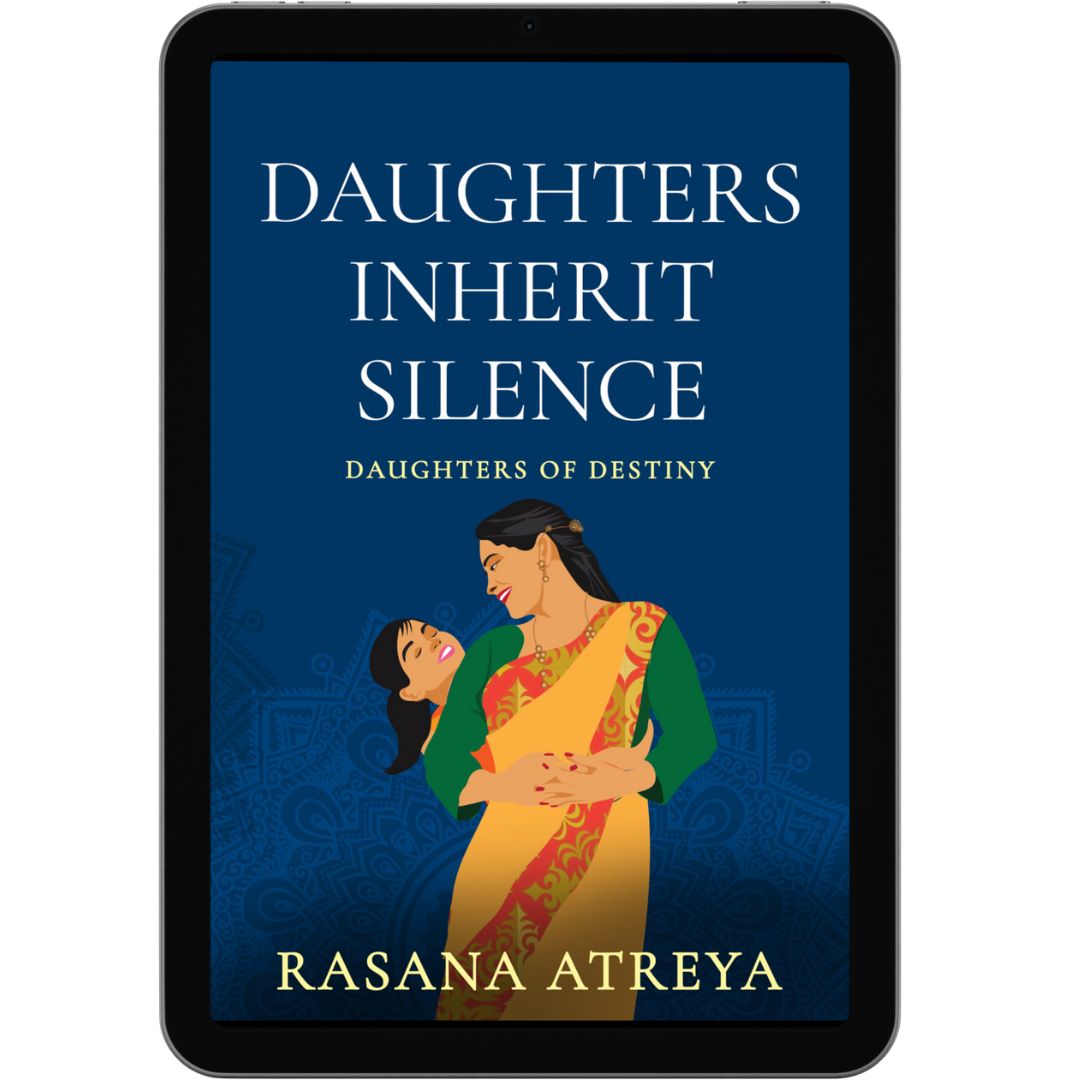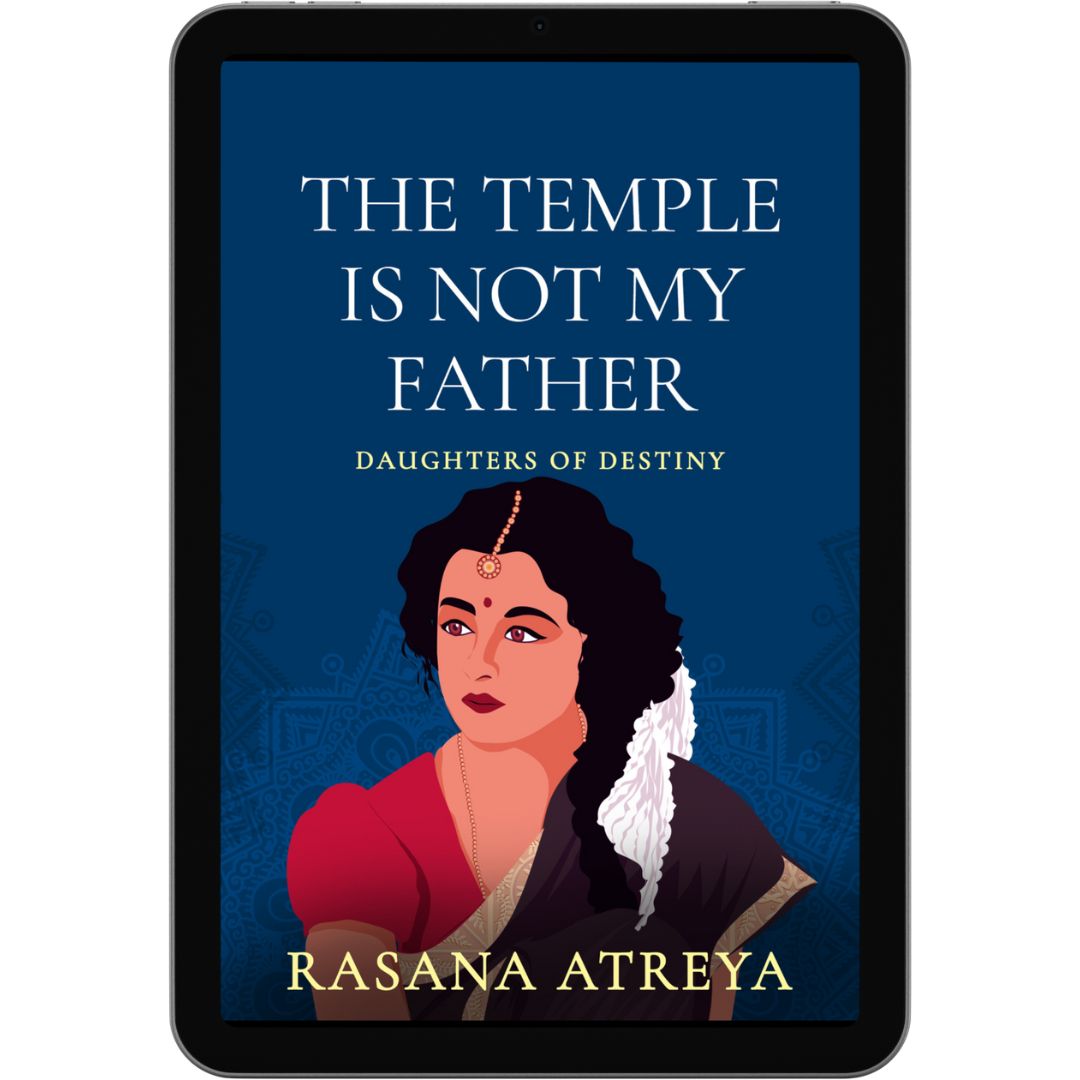Tell A Thousand Lies
Prologue
Mallepalli Village, June 1995
I am not my husband’s wife, nor my child’s mother. Who, then, am I?
Chapter 1
Mallepalli Village, December 1986
“Good thing you aren’t pretty, Pullamma,” Lakshmi garu said with a laugh. “Can you imagine the headache if we had to hide you too?”
I bit the inside of my cheek. Lakshmi garu was here to lend moral support for my older sister’s bride-viewing, and I mustn’t forget it.
“Towering like a palm tree, you are,” she said, “and skin dark like anything.”
I wondered if “garu,” as a term of respect, was wasted on this friend of my grandmother’s. Still, I was sixteen now. Couldn’t let words escape my mouth without proper consideration.
Lakshmi garu studied me for a long moment, the wide slash of her mouth disappearing into the mud-brown rectangle of her face. Shaking her head, she turned back to my grandmother.
It couldn’t be easy for our Ammamma—saddled as she was with three orphaned granddaughters and no male support—to marry us off. If today’s alliance for Malli fell through, where would we find another family willing to accept the limited dowry we had to offer?
Of the three of us, Malli was the most beautiful. But my fraternal twin was pretty, too. It was for this reason she’d been packed off to a relative’s house, out of sight of the groom’s family. For, if they got it into their heads to take Lata home as their daughter-in-law, it would be hard for us to refuse them. Given that Malli was the best-looking, it was unlikely, but why take the risk? If they chose the younger Lata over Malli, forever people would think there was some defect in Malli that had caused the groom’s family to reject her. Who would marry her, then?
Now, as Ammamma, Lakshmi garu and I waited for the prospective bridegroom’s family to grace us with their presence and decide if our Malli was good enough for them, I surveyed our walled-off rectangular courtyard.
Our house was a series of rooms lining the back of our courtyard, one opening into the next, like the compartments of a train. A veranda separated the rooms from the courtyard. Perpendicular to it was our cowshed. On either side of the cowshed were a tamarind tree and a sampangi tree. A coconut tree drooped against the far end.
Lakshmi garu was settled next to the sampangi tree, on a straw mat laid out on the mud floor. It was against this tree I sat, as I made my promise to Goddess Durga—if this alliance went through, I’d break coconuts at her altar.
That got me thinking. How many coconuts would it take to appease the Goddess? Two? Five? Twenty? Two seemed a little miserly. This was bride-viewing, not some silly plea to have a cute boy smile at me. But if I promised too much and couldn’t deliver, the wrath of the Goddess would surely befall me. Even more important, if Ammamma were forced to pay for twenty coconuts out of our meagre household income, she would strike me dead. Five seemed safer all around.
“Pullamma,” Ammamma said, interrupting my internal debate. “They should have been here twenty minutes ago. Go over to the post office and keep a watch for them.”
The only way into the village was past the post office, so I sprang to my feet.
“Let the girl be,” Lakshmi garu said. “How can they come here so soon? That, too, after travelling all night? They need time to freshen up, don’t they?”
I flopped back on the ground.
“Pullamma!” Ammamma said reprovingly.
I sighed, carefully arranging my half-sari over my feet. Remembering to be ladylike wasn’t as easy as it sounded.
Lakshmi garu’s sons were to pick the groom’s family up at the railway station and take them to their relatives’ house. There, the visitors would take their baths, have breakfast, and don their finery before coming over to view the bride.
Ammamma face’s reflected the tensions of the past few days. She stood, hands on hips, eyes locked on the narrow gate built into our compound wall.
“Oh, for goodness’ sake. Sit down.” Lakshmi garu patted the straw mat. “It is hurting my neck to look up at you.”
Ammamma sighed. She sank onto the mat, taking care not to wrinkle her orange silk sari. She fanned herself with a palm-leaf, despite the chill of the winter morning. Her eyes remained on the gate.
“At least, the walls appear new,” I said, proud that I’d helped make the house so festive.
Ammamma gave me a distracted smile. She had done her part by getting the vegetable seller to whitewash the walls of our house in return for a whole year’s worth of homemade mango pickle. But I’d been the one to make the intricate muggu pattern on the courtyard floor, blending white rice flour with coloured chalk. I’d also been the one to apply a fresh coat of cow dung to the courtyard walls in an effort to gloss over the cracks. Now, the walls looked almost new. But what I was most proud of were the flowers strung across our doorways—bright-orange marigolds and pure-white jasmines.
I’d risen before dawn to visit the wholesale flower market with Murty garu, husband of Lakshmi garu. Women were already streaming into the tight lanes, huge wicker baskets balanced on their heads and hips, the overflowing flowers a stunning contrast to the dusty by-lanes.
After the women settled alongside the road, squatting next to their baskets, Murty garu and I walked past, picking a small basket of flowers here, a length of woven flowers—measured from finger-tip to elbow—there.
If my efforts helped Ammamma get a granddaughter married off, I’d be forever grateful to Goddess Durga. I felt a pang at the thought of sweet Malli getting married and going off to her in-laws’ home. Then it would be Lata’s turn. Soon, I’d be the only one left. Oh well. At least, I’d have Ammamma.
A fragrant yellow-green flower floated down in the gentle breeze. Ammamma reached for it and shredded its rubbery petals, her eyes fixed on the gate. The cow mooed, startling her. “Where are these people?” she asked again.
This event was all we had talked about, planned for and worked around for two whole weeks. Actually, all our lives. Ammamma had high hopes for this alliance. The marriage broker had assured her that the groom’s family was more concerned about the colour of Malli’s skin than the size of her dowry.
This lack of interest in dowry was of particular worry to Ammamma. “My Malli is a gem, no doubt, but why are they settling for less?”
For Lakshmi garu, the most suspicious part was the marriage broker’s assurance that the dowry demands would be quite reasonable. “I just hope the boy doesn’t have some disease they’re hiding,” she said.
Lakshmi garu was a great one at being supportive.
“If he limps or something, I’m okay,” Ammamma said. “But anything more serious…”
Impatient at the delay, I jumped to my feet.
“Pullamma,” Ammamma said sharply, “don’t forget to be ladylike.”
Nodding, I hurried through the gate to the post office on the other side of the village square.
The post office was a tiny, airless room which the postmaster rarely used. Most days, he was to be found at his desk under the tamarind tree. Today, Murty garu was seated on a metal folding chair next to the postmaster, facing a line of squatting villagers. Letter reading was, of course, the job of the postmaster, but Murty garu pitched in whenever he could.
While Murty garu read a letter out loud to an elderly man, the postmaster was busy writing a letter on behalf of Murty garu’s neighbour, a young woman whose husband had migrated to the city in search of work.
He leaned forward, his ink-stained fingers tapping on the sun-dappled desk. “Do you want to tell your husband that your Chitti lost her first tooth?”
The woman nodded.
The postmaster bent forward and scribbled.
“About your mother-in-law’s fainting spell?”
She nodded again.
“What about the child that is coming? You haven’t given him the news, have you?”
The woman covered the lower half of her face with her sari and giggled.
“They’re coming, they’re coming,” a hoarse voice shouted.
I flushed with excitement.
A couple of labourers, cotton towels wound around their heads to prevent sweat from dripping into their eyes, ran up the dusty road, heralding the arrival of the groom’s family.
Murty garu looked up from the letter he was reading out loud, smiling apologetically at the old man squatting across from him. “I’m an elder at the bride-viewing for Pullamma’s sister.”
“Please, go,” the old man said, reaching for his letter. “This can wait.” He went over to squat in the line, awaiting the postmaster’s attention.
I ran back to the house, trying not to trip over my half-sari. “They’re coming, they’re coming!”
Ammamma didn’t even scold me for my unladylike haste. She hurried to the gate with Lakshmi garu just as Lakshmi garu’s two sons drove up in their shiny new tractor.
An older man, most likely the groom’s father, sat in the front, a child in his arms. A couple of men stood on the sideboards, clinging to wherever they could get a hold. The rest of the groom’s party was squashed up on the rug laid on the floor of the trailer. The tractor belched fumes of diesel and shuddered to a halt.
Across the road, all activity stopped. People turned to inspect the commotion. I puffed with pride.
Murty garu greeted our honoured guests, palms of his hands joined together. “Namaskaram! I hope your travel was comfortable.”
“The train was late,” the groom’s mother said, as Murty garu helped her down. Being the mother of the groom, this was her chance to complain, and she did. “On top of it, we couldn’t get seats in Second Class. So we had to travel like some low-class people, no reservation, no nothing. Had to sit up all night on a suitcase. Now, my back is paining me, and my leg is swollen.” Her voice quavered. “My head is pounding so hard, I might have to cancel today’s bride-viewing.”
Ammamma clapped her mouth in dismay. “Aiyyo, I beg you, don’t even think such a thing. What will people say if the bride-viewing party turns back? They’ll blame my Malli’s bad fate, is what they will do. Who will marry her, then?”
“I’m at your command,” Murty garu said. “Anything to help.”
“Can you arrange for medicine?” the groom’s father said.
“Right away.” Murty garu flicked a finger at his younger son, who took off at a run in the direction of the xerox-cum-medical shop.
“These trains,” the groom’s father said, “they should have a lot more compartments. So many people travelling, no? The Railway Minister should do more for the interior villages. We travelled all night, no rest, no place to sit. General Compartment. Just imagine!” He nodded at the child in his arms. “And with my grandson, too.”
“So much headache merely to view the bride?” Murty garu shook his head in tandem with his raised hand, a what-is-this-world-coming-to look on his face.
The next to alight had to be the groom. In his early twenties, he seemed an agreeable fellow, of medium height and complexion, though on the skinny side. He bent at the waist to touch Ammamma’s feet, then touched his fingers to his eyes in respect.
Well brought up, too. I hoped things worked out today. Malli and he would make a cute couple.
Kondal Rao garu—husband of Ammamma’s friend, and honoured guest—was due anytime now, so our party of twenty waited by the courtyard gate. Murty garu’s son, back from the medical shop, handed the medicine and a glass of water to the groom’s mother. She drank the water and dropped the medicine inside her purse.
Since the groom’s family was from Kondal Rao garu’s village, my grandmother had sought him out to make inquiries about the family. Before we could allow our Malli to be married into their family, we had to ensure that the groom was of good character, and his lineage respectable, hadn’t we? We were lucky that Kondal Rao garu had personally vouched for the groom’s family.
Weren’t we?
I felt a frisson of fear. What if Jhampaiah, the day labourer, was right? What then?
***
That day, from two months ago, was still clear in my mind.
When the marriage broker brought news about this alliance, Jhampaiah was perched high up on the coconut tree in our courtyard.
“Welcome,” Ammamma said, smiling. The marriage broker was a most favoured visitor. “Please freshen up. So hot, isn’t it?”
To me, Ammamma said, “Pullamma, pour out some buttermilk.”
The marriage broker, a skinny woman with bulging eyes and sloped chin, slipped out of her footwear and walked over to the three-foot cemented square in one corner of the courtyard. Pumping the hand-pump till water gushed out, she washed her face first, then her feet. Wiping her face with the free end of her sari, she settled on the straw mat. “I have just the alliance for you,” she said.
I handed her a glass of buttermilk.
“Who is the family?”
“You won’t believe it.” The broker’s tone held reverence.
“Who?”
“The father of the groom is the right-hand man of Kondal Rao garu himself.”
“My Malli is favoured, indeed!” Ammamma raised her joined palms above her head, eyes shining. “Kondal Rao garu’s wife is my childhood friend. We couldn’t get a better alliance if we tried.”
Crash! A semi-circular knife buried itself at the base of the coconut tree.
Ammamma jerked her head up at Jhampaiah, balanced high up on our tree, bare legs wrapped around the skinny trunk.
He looked down at the fallen knife in dismay.
Ammamma shook a fist at him. “What if someone had been standing below?”
Jhampaiah shimmied down the tree and shuffled up to Ammamma, head hanging.
“What is done, is done,” Ammamma said. “Just be more careful the next time.”
He nodded vigorously.
“Did you pluck the coconuts?”
Jhampaiah nodded again and started to shove the coconuts into a gunny bag. He had been hired to strip the tree of the coconuts. He’d sell them for Ammamma and take a commission for himself. After the coconuts were put away, he squatted next to the gunny bag, focussing his unblinking gaze on Ammamma.
“What?” Ammamma said.
Jhampaiah shook his head.
The marriage broker laughed. “Must be waiting for me to leave so he can discuss his petty little issues with you.”
She pointed her sloped chin at Jhampaiah, the hairs on it glistening. “Peetha kashtalu peethavi,” she quoted in our native Telugu, reducing his concerns to those of a mere crab.
The broker drained her glass, walked to the cemented square, which also served as a wash area, and put the buttermilk glass down. “I will set up the bride viewing, then.”
Ammamma joined her palms together in farewell. “That would be good.”
The marriage broker let herself out of the courtyard.
As soon as the woman closed the gate behind her, Jhampaiah joined the palms of his hands in entreaty. “Please don’t take offence. I am talking out of turn.” Sweat beaded his upper lip.
“Speak freely.”
“Don’t go with the alliance.”
I was startled. “But, why?”
Ignoring me, he leaned forward, the cords in his neck straining. “There is a lot of talk about Kondal Rao garu. Bad talk.”
“Bah!” Ammamma reached for a coconut-frond broom. “For this, you made so much drama? Go to the market and sell your coconuts. Leave the thinking to me.”
He got to his feet and slung the gunny bag over his shoulder. At the gate, he turned. “Amma garu, I beg you, don’t dismiss this so casually.”
Ammamma waved him away.
He scurried out, a frightened look on his face.
“These people,” Ammamma said, sweeping the debris from the coconuts. “They have no education, no understanding. With my fifth-class education, I’ll need him to tell me right from wrong? I’ll be scared of my own friend’s husband, or what?”







